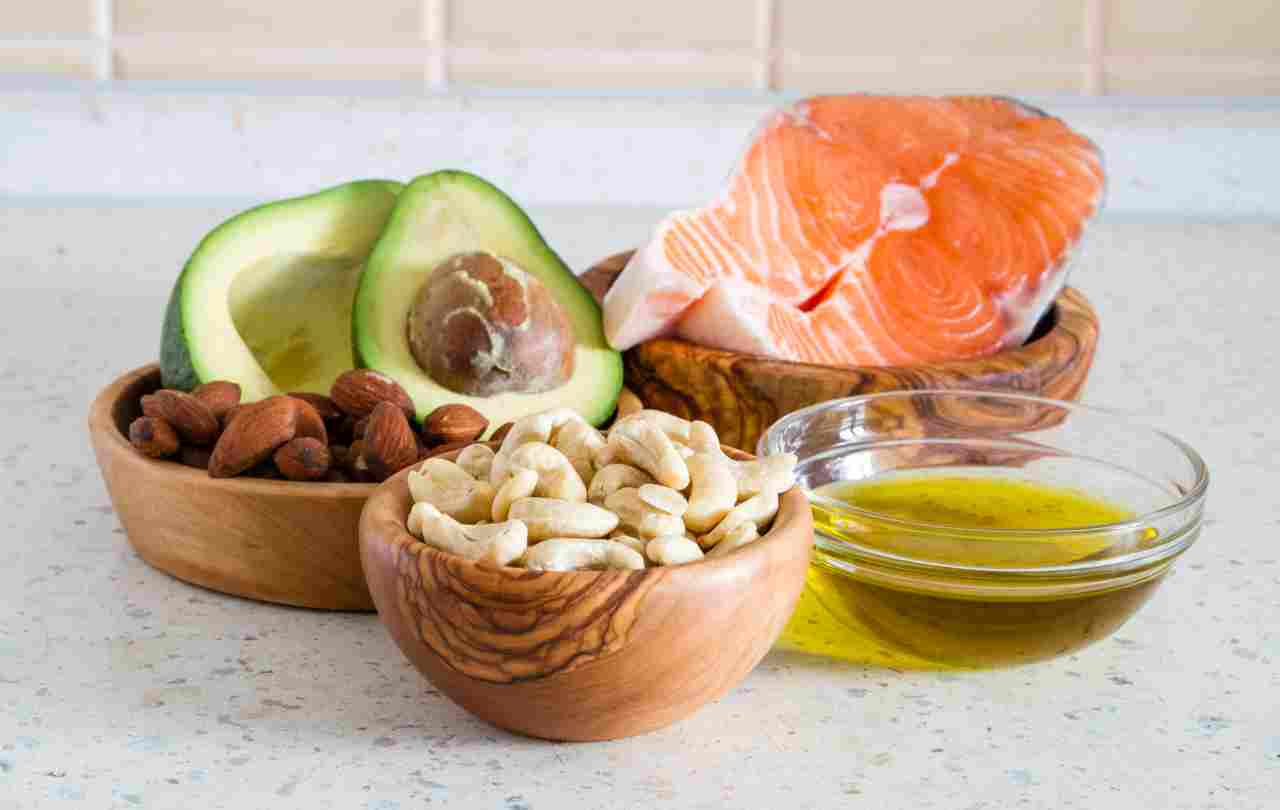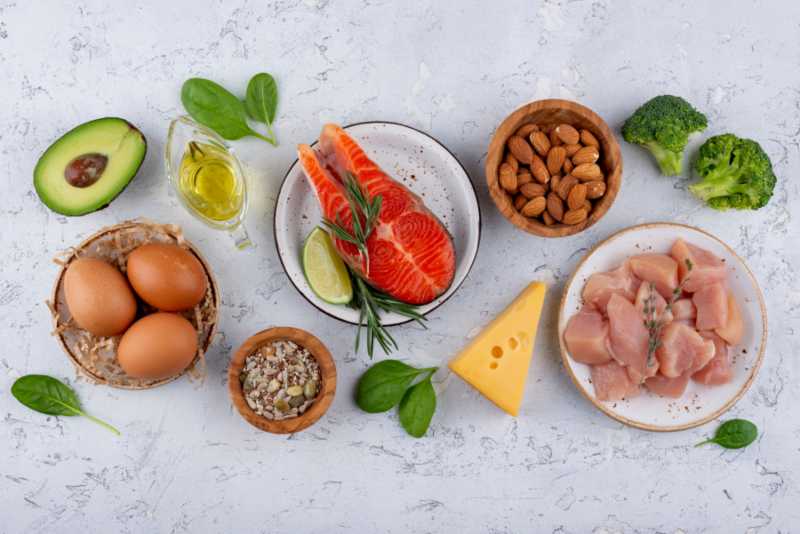Get In Touch
Info@fitfaysal.com

Fats are twice as calorically dense as protein and carbs, so why are they good for us?
Fats are an essential macronutrient because they provide us with lots of energy, help us build hormones, control inflammation, and provide lots of other benefits.
However, all fats aren’t equal; don’t get confused with the “bad fats” that we get from most fried foods.
I’ll be covering some Nigerian foods that are a great source of healthy fats—the types of fats your body will thank you for.
The ideal fat intake should be around 20–35% of your diet; that’s around a quarter of each of your meals, so knowing the right fats to add to your plate is key.
Here’s a list of Nigerian foods high in healthy fats:

Avocados are pretty essential for a high-fat and high-protein diet. It is known for its rich content of healthy fats, primarily monounsaturated fats such as oleic acid.
These fats are beneficial for heart health, reducing inflammation, and promoting “feelings of fullness” from your meals.
Adding avocados to your diet can be as simple as enjoying them on toast, in salads, or as a creamy addition to various dishes.
Coconut is high in healthy fats, especially medium-chain triglycerides (MCTs), which are known for their rapid energy release.
Nigerian dishes frequently include coconut in various forms, such as coconut oil, milk, and shredded coconut.
This adds depth of flavor and texture while also providing nutritional benefits.
Palm oil gets mixed reviews online. However, studies have shown that the benefits of palm oil outweigh the drawbacks.
However, if you’re trying to lose weight, you will have to keep the oils aside.
Palm oil is pure fat, so it would be beneficial for people trying to gain weight.
While it has sparked some debate due to its saturated fat content, it also boasts antioxidants, which support heart health and possess anti-inflammatory properties.
Moderate consumption of palm oil can contribute to a well-rounded diet.
Related: 15 Nigerian Foods That Are Making You Fat (Avoid These!)
Sardines are small, oily fish rich in healthy fats, particularly omega-3 fatty acids like EPA and DHA.
They are also a good source of protein, vitamin D, and calcium, which support bone health, muscle function, and immune function.
Having sardines with scrambled eggs for breakfast will give you a punch of protein and fats that will keep you feeling satiated.
Eggs are known for their high levels of protein, but most people don’t know that they are also a versatile source of healthy fats, particularly omega-3 fatty acids.
They are also known for being an abundant source of vitamins and minerals.
If you’re considering going on a high-protein, high-fat diet, adding lots of eggs is a great first step.
If concerns about cholesterol levels arise, it’s advisable to moderate egg consumption to 1-2 per day.
Soybeans are versatile legumes high in healthy fats, specifically polyunsaturated fats such as omega-6 fatty acids and alpha-linolenic acid (ALA).
These fats help with hormone balance and reduce the risk of chronic diseases such as heart disease and diabetes.
Soybeans are also a complete source of protein, fiber, vitamins, and minerals, making them a healthy addition to any diet, particularly for vegetarians and vegans.
Full-fat yogurt is a dairy product that contains a lot of healthy fats, especially saturated fats and conjugated linoleic acid (CLA).
These fats are essential for maintaining brain health, hormone production, and satiety.
Full-fat yogurt contains probiotics, calcium, and vitamin D, all of which help with gut health, bone strength, and immune function.
A good way to maximize your fat intake is to mix your yogurt with nuts.
Related: 30 High Protein Foods in Nigeria (Full List with Calorie Values!)
Ogbono seeds, also known as African mango seeds, are a common ingredient in our Nigerian soups and stews.
These seeds are high in healthy fats, especially oleic and linoleic acids, which promote heart health and reduce inflammation.
Ogbono seeds are also high in fiber, protein, and antioxidants, which are beneficial to digestion and immune function.
Tiger nut, also known as “Aya” in Nigeria, is a small tuber high in healthy fats, specifically monounsaturated fats and omega-3 fatty acids.
These fats are good for heart health, brain function, and lowering inflammation.
Tiger nuts are also high in fiber, vitamins, and minerals such as vitamin E, potassium, and magnesium, all of which are beneficial to overall health and wellness.
Seeds and nuts are a great source of healthy fats, protein, and essential nutrients.
Here in Nigeria, you can commonly find nuts and seeds like
These can be enjoyed as snacks, added to dishes, or used to prepare flavorful sauces and spreads.
Nigerian foods offer a variety of options rich in healthy fats, providing numerous health benefits.
Avocado, coconut, palm oil, sardines, eggs, soybeans, full-fat yogurt, ogbono seeds, tiger nuts, and various seeds and nuts are excellent choices for adding healthy fats to your diet.
These foods contain essential fatty acids like omega-3 and omega-6, which promote heart health, reduce inflammation, and support overall well-being.
Adding these nutritious foods to your meals can help you achieve a balanced diet and optimize your health.